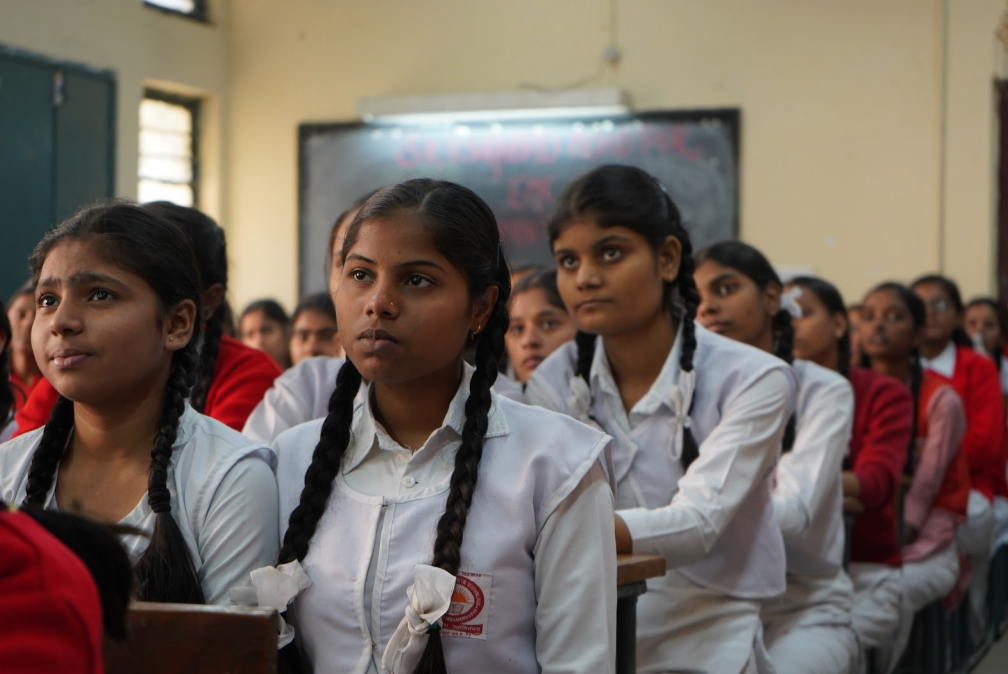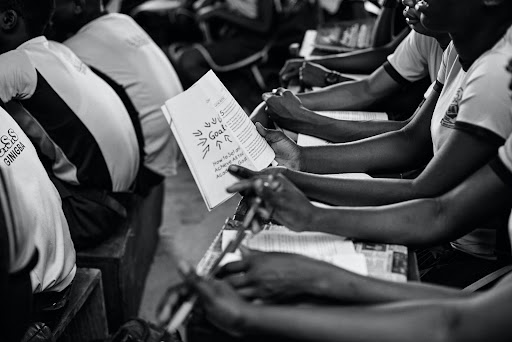By Yasmine Titouni / GICJ
At a time when access to education is commonly taken for granted, the United Nations has acknowledged the unfortunate reality for millions of school-aged children. While some are born with unconditional and free access to public schools, millions of children face the reality that education is a luxury they cannot afford. On Tuesday 21 June 2022, the United Nations issued an alarming report on the status of educational access for crisis-affected school-aged children. According to the United Nations, an estimated 222 million crisis-impacted children of school age are denied access to education and are in need of educational support. This situation requires immediate attention, as the number of children in need of educational assistance has surged by 147 million in six years, from approximately 75 million in 2016. Presently, over 600 million schoolchildren across the globe are unable to attain minimum competency in mathematics and reading [1].
 While 120 million students are not achieving minimum proficiency in basic areas, it has been brought to the world’s attention that approximately 78.2 million children have been completely withdrawn from school, with "their dreams for the future being snatched away by conflicts, displacement, and climate disasters," as stated by the United Nations [2]. The majority of the uneducated youth have been forced to abandon their education due to increasing levels of poverty and social instability that have plagued their regions for generations. While their communities are being torn apart by war and disaster, jeopardising their chances of learning to read and write, their need to be rescued has never been greater.
While 120 million students are not achieving minimum proficiency in basic areas, it has been brought to the world’s attention that approximately 78.2 million children have been completely withdrawn from school, with "their dreams for the future being snatched away by conflicts, displacement, and climate disasters," as stated by the United Nations [2]. The majority of the uneducated youth have been forced to abandon their education due to increasing levels of poverty and social instability that have plagued their regions for generations. While their communities are being torn apart by war and disaster, jeopardising their chances of learning to read and write, their need to be rescued has never been greater.
Of the 200 million children who are currently denied access to school all over the world, the vast majority of them are concentrated in areas with high dropout rates that are affiliated with Education Cannot Wait’s (ECW) multi-year initiatives, including Afghanistan, the Democratic Republic of the Congo, Ethiopia, Mali, Nigeria, Pakistan, Somalia, South Sudan, Sudan, and Yemen [3]. The COVID-19 pandemic exacerbated these issues, revealing an unanticipated degree of socioeconomic inequality that has jeopardised the efforts and investments of organisations like the ECW to provide educational support.
However, the struggle to provide educational support has reached a universal scale. Even before the COVID-19 pandemic brought ‘education systems to a halt’[4], international organisations have faced numerous obstacles to providing education for all schoolchildren. As highlighted in a recent UN report, ECW and corporate partners launched the #222MillionDreams funding campaign in Geneva. The campaign urges contributors, private foundations, and high-net-worth individuals to mobilise additional resources in the fight against the inequitable treatment of schoolchildren. While the General Secretary of the United Nations called on the international community and civil society to "help us save 222 million dreams", Gordon Brown, a UN Special Envoy for Global Education as well as a chair member of the ECW group, reminded us of how crucial it was that new financial resources be gathered to fund greater levels of educational support and “guarantee that every child and young person in the world has access to a decent education"[5].
international organisations have faced numerous obstacles to providing education for all schoolchildren. As highlighted in a recent UN report, ECW and corporate partners launched the #222MillionDreams funding campaign in Geneva. The campaign urges contributors, private foundations, and high-net-worth individuals to mobilise additional resources in the fight against the inequitable treatment of schoolchildren. While the General Secretary of the United Nations called on the international community and civil society to "help us save 222 million dreams", Gordon Brown, a UN Special Envoy for Global Education as well as a chair member of the ECW group, reminded us of how crucial it was that new financial resources be gathered to fund greater levels of educational support and “guarantee that every child and young person in the world has access to a decent education"[5].
Finally, while any member of civil society is welcome to contribute to the cause, recent mobilisation campaigns have largely adhered to the notion that "governments, the private sector, and foundations can and must unlock these resources" [6].
Geneva International Centre for Justice (GICJ) applauds the United Nations' initiative to launch the Transforming Education Summit in an effort to "place education within the reach of every child, everywhere" [7]. GICJ calls upon states to place children's access to education at the top of their political agendas and implores them to strengthen their efforts to accommodate crisis-affected children within their educational systems and address all educational gaps that were exacerbated as a result of the COVID-19 pandemic.
Education, Crisis, Schooling, Justice, Human rights, Geneva, Geneva4Justice, GICJ, Geneva International Centre For Justice
[1] https://news.un.org/en/story/2022/06/1120922
[3] https://news.un.org/en/story/2022/06/1120922
[5] https://news.un.org/en/story/2022/06/1120922
[7] https://www.un.org/en/transforming-education-summit
Image source: pexels.









